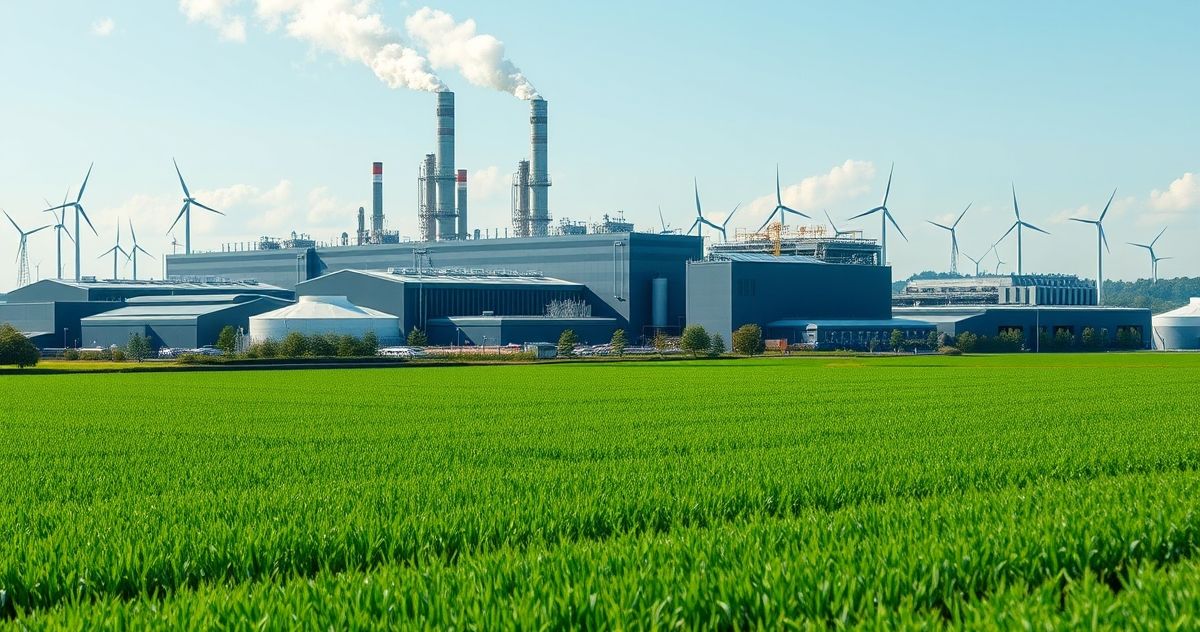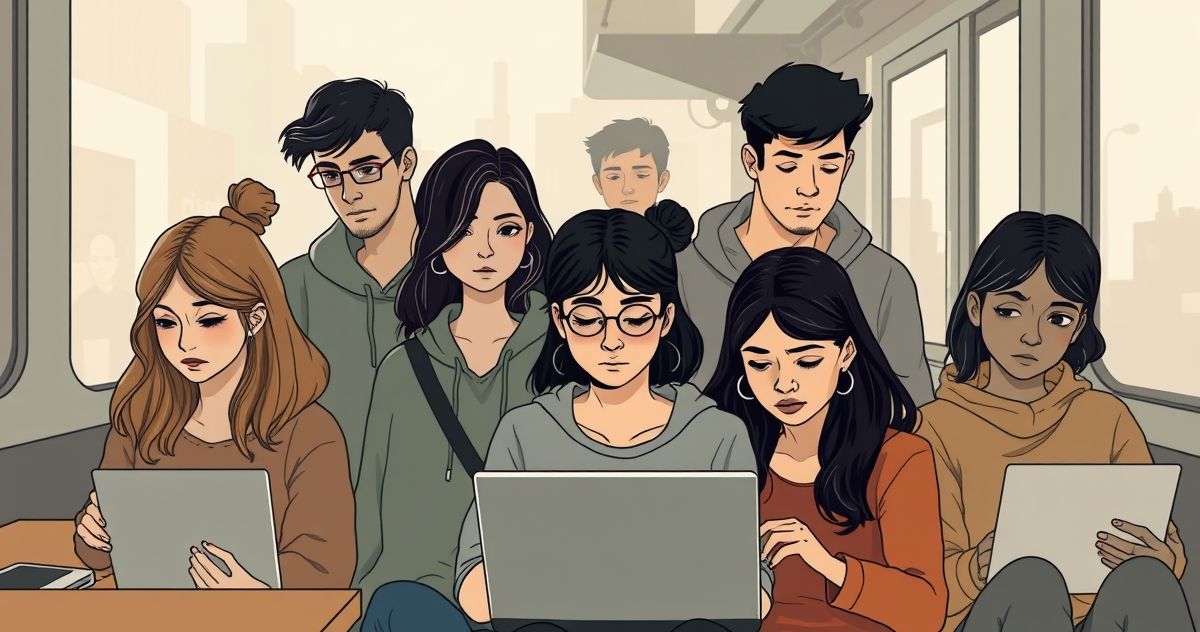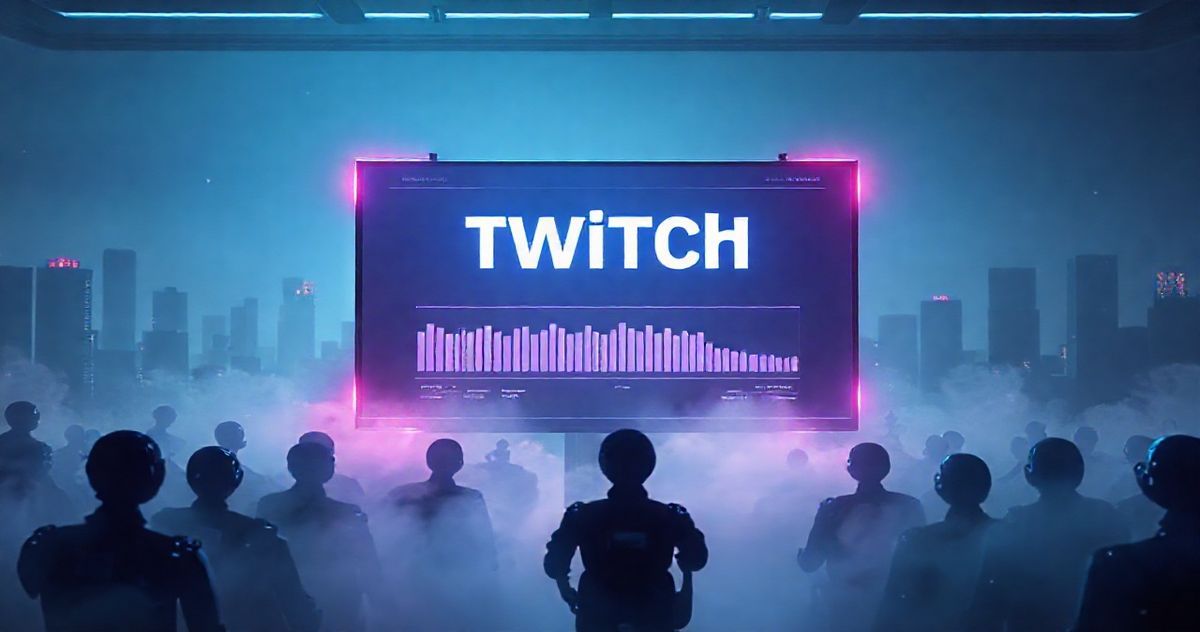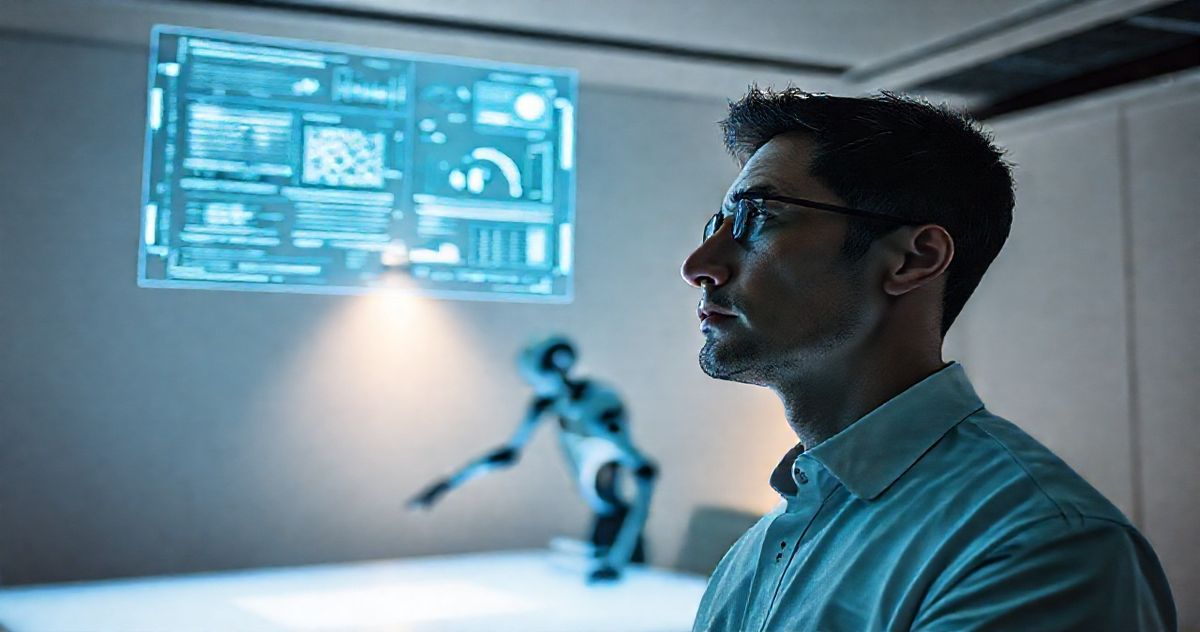Did you know that AI could save some of the biggest companies in America almost a trillion dollars every single year? That’s not a typo. We’re talking about S&P 500 companies, the giants of industry. They might be looking at trimming their budgets by a mind-boggling amount, largely because artificial intelligence is stepping in to handle jobs traditionally done by humans. This isn’t just a futuristic prediction; it’s a current trend accelerating rapidly.
Think about it. We’re seeing more and more “agents” and “robots” – basically, smart software and automated systems – taking over tasks that used to require a person. This isn’t just about factory robots anymore, though those are part of it. It’s about digital workers, sophisticated algorithms, and AI programs doing everything from answering customer questions to crunching huge sets of numbers. And while that sounds great for a company’s bottom line, potentially boosting profits, it naturally makes a lot of us wonder: what does this mean for human jobs? What about the people whose roles are being taken over by these tireless digital assistants?
***
## The Trillion-Dollar Question: How AI Saves Big Bucks
It all comes down to efficiency and cost, pure and simple. Humans need salaries, benefits, office space, and ongoing training. AI, once it’s set up and properly tuned, can work 24/7 without getting tired, needing a coffee break, or asking for a raise. It can process information at speeds no human ever could, and it makes fewer errors in repetitive tasks. When you scale that across hundreds of thousands of employees in major corporations, the savings add up incredibly fast. We’re talking about automation in areas spanning almost every department.
For example, imagine a huge bank or a massive retail chain. They have thousands of people doing things like processing loan applications, checking for fraud, managing inventory, or helping customers with simple account inquiries. An AI system can now learn to do many of these tasks. It can sort through mountains of documents in seconds, identify patterns that signal potential fraud, manage supply chain logistics to optimize stock levels, and even chat with customers to resolve common issues, all without human intervention. This means companies can operate with a leaner workforce for certain functions, translating directly into those colossal budget cuts.
***
## What Kind of Jobs Are We Talking About?
It’s a fair question. Are we talking about every job under the sun being at risk? Probably not. At least, not yet. But the impact is certainly going to be felt most acutely in roles that are repetitive, data-heavy, or involve predictable decision-making. These are the sweet spots for AI, where it can replicate and even outperform human capabilities with speed and accuracy.
Here are some areas where AI is already making significant inroads, leading to those big budget cuts for S&P 500 companies:
* **Customer Service:** Advanced chatbots and virtual assistants are handling initial inquiries, troubleshooting common problems, and guiding users through processes.
* **Data Entry & Processing:** AI can extract information from complex documents, organize vast datasets, and even generate basic reports.
* **Back-Office Administration:** Routine tasks like scheduling appointments, sending out invoices, and managing inventory can be heavily automated.
* **Financial Analysis:** AI can process market data in real-time, identify subtle trends, and even suggest optimal trading strategies or risk assessments.
* **Basic Content Generation:** From drafting marketing copy to summarizing news articles, AI tools are becoming adept at creating initial drafts.
***
## A Personal Story: My Friend Sarah and the Spreadsheet Saga
I remember my friend Sarah, who worked in a big financial firm. For years, her main job involved spending hours, and I mean *hours*, buried in Excel spreadsheets. She’d pull data from different systems, cross-reference numbers, and meticulously build complex financial reports. It was detailed, important work, but incredibly time-consuming and, honestly, a bit mind-numbing for her. She often felt like a human calculator.
One day, her company introduced a new AI-powered system designed to automate data consolidation and initial report generation. Suddenly, the AI could pull all that data, run the necessary comparisons, and generate a first draft of her reports in mere minutes. Sarah initially worried about her job. Would she still be needed? As it turned out, her role shifted dramatically. Instead of just *doing* the data entry and initial number-crunching, she became the expert who *verified* the AI’s work, delved into the deeper implications of the data, and presented the findings to management with a human touch – explaining the ‘why’ behind the numbers. Her day-to-day work changed dramatically. It was a job *transformation* driven by AI. She moved from a task-doer to a strategic analyst, thanks to AI taking over the grunt work.
***
## Getting Ready for What’s Next
This shift isn’t just about companies saving money. It’s about a fundamental change in how work gets done across industries. For some, like Sarah, it means evolving their skills and focusing on areas where uniquely human creativity, critical thinking, problem-solving, and emotional intelligence still reign supreme. These are the skills AI struggles with, and likely will for a long time. For others, it might mean entirely new career paths emerge that we can’t even fully imagine yet, as human ingenuity finds new problems to solve in an AI-assisted world.
The key takeaway isn’t to panic, but to understand what’s happening and start preparing. AI is becoming incredibly capable, moving beyond just simple automation to more complex cognitive tasks. Companies are always looking for ways to be more efficient and cut costs. When those two powerful forces meet, big changes are inevitable. We’re talking about a future where a significant chunk of current tasks could be handled by digital assistants and smart robots, freeing up — or displacing — human workers.
It’s a huge economic shift, and it’s happening right now, not decades in the future. The numbers suggest an unprecedented amount of money could be saved by S&P 500 companies. This means potentially more profits for shareholders, but also a big question mark over millions of jobs.
So, as AI continues to evolve and take on more and more tasks, how do *you* think we, as individuals and as a society, should prepare for a world where so much of the routine work is done by machines? What new skills will be most valuable, and how do we ensure this future benefits everyone, not just corporate balance sheets?











